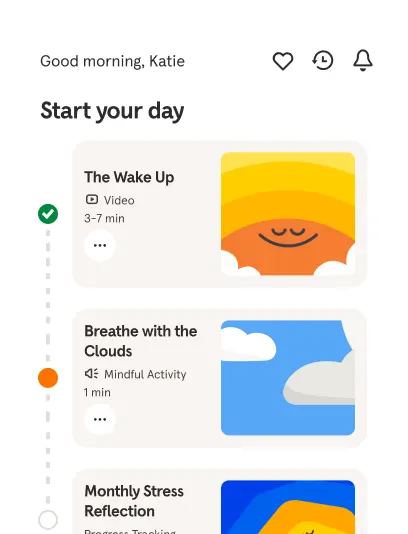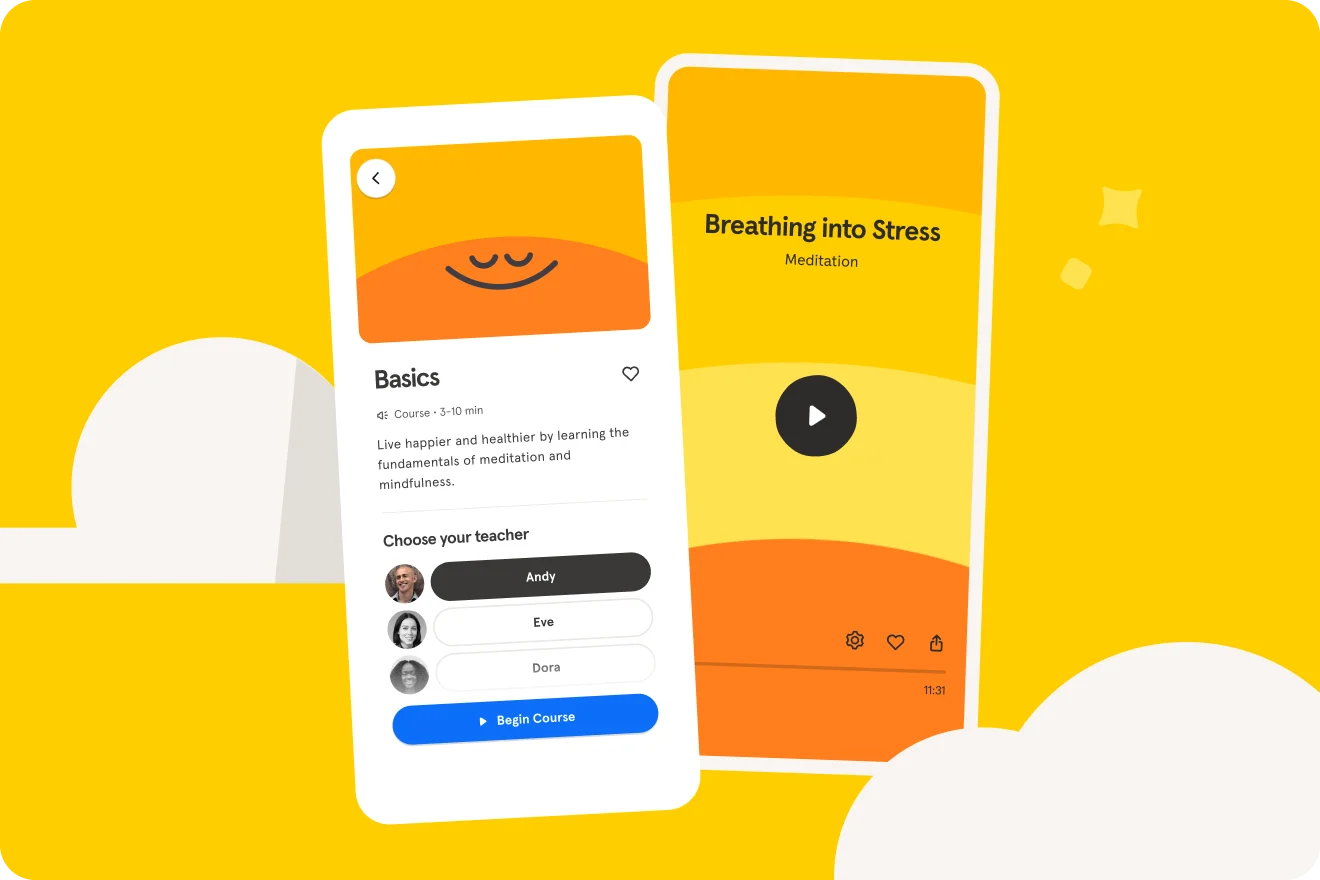Unlocking Motivation with Self-Compassion: A Fresh Perspective, with Dr. Kristin Neff
Self-compassion expert Dr. Kristin Neff is guest hosting and today she debunks the myth that self-compassion hinders motivation, revealing how it serves as a more effective motivator than self-criticism.
Try 14 days freeBetter mental health starts with Headspace. Unrivaled expertise to make life feel a little easier, using guided meditations, mindfulness tips, focus tools, sleep support, and dedicated programs.
Try 14 days free
(screen clicks) (bright music) Headspace Studios. Hi everyone, this is Dr. Kristen Neff, your guest host for the week. Welcome to Radio Headspace and Wednesday. So, today we're going to get into how self-compassion is actually a more effective motivator than self-criticism and how we can use encouragement rather than cruelty to try to motivate a change in our lives. (waves whooshing) So, research shows that actually the number one reason people aren't more self-compassionate is they think it's gonna undermine their motivation. You know, they'll lose their edge if they're too soft on themselves. In fact, they really cling to their self-criticism. They think they need their self-criticism in order to like meet that deadline, or meet that sales goal, or make that change. Believe it or not, the research shows that self-compassion is a much more effective motivator than self-criticism. Let's face it, self-criticism does kind of work as a motivator. You know, we wouldn't do it if it didn't work somewhat. Maybe you got through law school or med school by being a hard self critic. But it works the same way that harsh criticism works to motivate a child. You may get the child to comply in the short term, but there's gonna be a lot of long-term unintended consequences. First of all, they think they're unloved and unlovable by their parents. What does that do to their mindset? Well, it might make them depressed. Depression isn't great for motivation. It's also gonna make them lose faith in themselves, right? Like, "Oh, maybe I'm not very good at math, maybe actually I should just drop math." So it actually is gonna make it harder for that child to learn and to study for their next math test. You know, if you teach your child failure is just part of being human, it's a learning opportunity, then that means that they'll actually have more emotional resources to learn and grow from their mistakes. And this is exactly what the research shows. My lab recently conducted a study where we taught self-compassion to NCAA athletes to see if self-compassion could actually help them improve their performance. Now, athletes tend to be very hard on themselves, because the stakes are so high. But we taught athletes how to be kind and supportive to themselves when they had, you know, mistakes in their training routine or mistakes in their games, as opposed to just beating themselves up. And that focus on improvement as opposed to shame and self playing, "I must be a lousy athlete," actually meant their performance increased. It actually crushes me when people think that self-compassion undermines their motivation, because in fact, it's one of the most effective motivators we have available to ourselves. So in terms of how to use self-compassion as a motivator, just acknowledge, Hey, human beings make mistakes. This is part of the human experience. So normalizing making mistakes, and then seeing how can I use warmth, encouragement, and constructive criticism to improve?...
Details
About your teachers
- More about Andy
A former Buddhist monk, Andy has guided people in meditation and mindfulness for 20 years. In his mission to make these practices accessible to all, he co-created the Headspace app in 2010.
- More about Eve
Eve is a mindfulness teacher, overseeing Headspace’s meditation curriculum. She is passionate about sharing meditation to help others feel less stressed and experience more compassion in their lives.
- More about Dora
As a meditation teacher, Dora encourages others to live, breathe, and be with the fullness of their experiences. She loves meditation’s power to create community and bring clarity to people’s minds.
- More about Kessonga
Kessonga has been an acupuncturists, therapist, and meditation teacher, working to bring mindfulness to the diverse populations of the world.
- More about Rosie
Rosie Acosta has studied yoga and mindfulness for more than 20 years and taught for over a decade. Rosie’s mission is to help others overcome adversity and experience radical love.

Your lifelong guide to better mental health
Stress, sleep, and all the challenging emotions — care for your mind with the everyday mental health app that's shown to make a difference.
Try 14 days free
Look after your mind
Proven guided meditations and programs to help you stress less, sleep more soundly, and better navigate life’s challenges

Science-backed
Studies show that using Headspace for 30 days can reduce stress, increase resilience, and improve overall well-being

Explore 1000+ expert-led exercises
Access our library of meditations, breathing exercises, and guidance videos for stress, sleep, focus, everyday anxiety , parenting, and more.
Member reviews
Hear from some of our members
Your app brings so much peace and tolerance to our home.
Rachel
UK
Changing my thoughts has allowed me to change my life.
Davide
London
The stress and loneliness courses … taught me how to comfort myself.
Alicia
Canada
Headspace provides me with … a connection to myself, and a disconnection from negative thoughts, feelings, and sensations.
Keri
UK
Related to 'Unlocking Motivation With Self Compassion A Fresh Perspective With'
- © 2024 Headspace Inc.
- Terms & conditions
- Privacy policy
- Consumer Health Data
- Your privacy choices
- CA Privacy Notice

